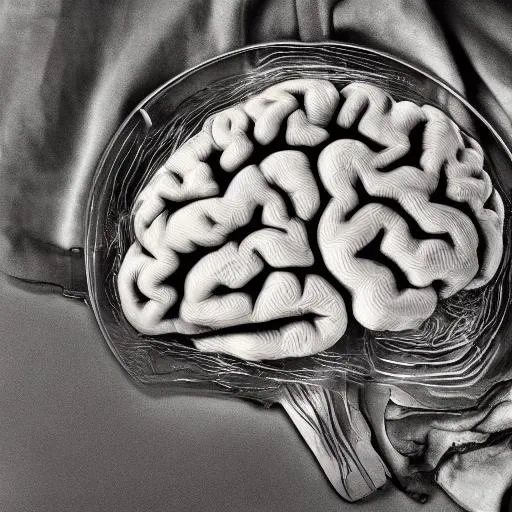All Posts The Integral Link Between Nutrition and Mental Health

In a world where stress, anxiety, and depression are increasingly prevalent, the importance of mental well-being cannot be overstated. While therapy and medication remain vital tools in treating mental health issues, there’s a growing body of evidence suggesting that what we eat plays a significant role in our mental well-being. This burgeoning field of study explores the intricate relationship between nutrition and mental health, shedding light on how certain foods can support brain health and mood regulation.
In this comprehensive guide, we’ll delve into the fascinating connection between nutrition and mental well-being. From exploring the science behind this relationship to identifying specific foods that promote brain health and mood regulation, we’ll equip you with the knowledge you need to nourish your mind and cultivate greater mental resilience.
The Science Behind Nutrition and Mental Health
To understand the link between nutrition and mental health, it’s essential to explore the underlying science. The brain is a highly metabolic organ, requiring a constant supply of nutrients to function optimally. Key nutrients, such as omega-3 fatty acids, vitamins, minerals, and antioxidants, play crucial roles in maintaining neuronal structure and function, neurotransmitter synthesis, and overall brain health.
Research has demonstrated that deficiencies in certain nutrients can adversely affect mood and cognitive function. For example, inadequate intake of omega-3 fatty acids, commonly found in fatty fish like salmon and walnuts, has been linked to an increased risk of depression and other mood disorders. Similarly, deficiencies in B vitamins, particularly folate and vitamin B12, have been associated with cognitive decline and depressive symptoms.
Moreover, chronic inflammation, often fueled by poor dietary choices, has been implicated in the development of various mental health conditions, including depression, anxiety, and schizophrenia. Foods high in sugar, refined carbohydrates, and trans fats can promote inflammation in the body, potentially contributing to mental health disturbances.
Conversely, adopting a nutrient-dense diet rich in fruits, vegetables, whole grains, lean proteins, and healthy fats can provide the essential building blocks for optimal brain function and mental well-being. These foods are packed with vitamins, minerals, antioxidants, and phytochemicals that support neural health, combat inflammation, and promote a balanced mood.
Foods That Support Brain Health and Mood Regulation
Now that we’ve established the importance of nutrition for mental health, let’s explore some specific foods that can support brain health and mood regulation:
- Fatty Fish: Fatty fish such as salmon, mackerel, and sardines are rich sources of omega-3 fatty acids, particularly EPA and DHA. These essential fats play a crucial role in brain function and have been linked to a reduced risk of depression and cognitive decline.
- Leafy Greens: Leafy greens like spinach, kale, and Swiss chard are packed with vitamins, minerals, and antioxidants, including folate and magnesium, which are essential for mood regulation and stress management.
- Berries: Berries such as blueberries, strawberries, and raspberries are loaded with antioxidants known as flavonoids, which have been shown to have neuroprotective effects and may help improve cognitive function and mood.
- Nuts and Seeds: Nuts and seeds, including almonds, walnuts, flaxseeds, and chia seeds, are excellent sources of healthy fats, protein, and fiber. They also provide essential nutrients like magnesium, zinc, and vitamin E, which support brain health and reduce inflammation.
- Whole Grains: Whole grains like oats, quinoa, and brown rice are rich in fiber and nutrients such as B vitamins and magnesium, which are important for energy production and mood regulation.
- Yogurt and Fermented Foods: Yogurt, kefir, sauerkraut, and other fermented foods contain beneficial probiotics that support gut health. Emerging research suggests that the gut-brain axis plays a significant role in mental health, and maintaining a healthy balance of gut bacteria may positively influence mood and cognition.
- Dark Chocolate: Dark chocolate with a high cocoa content is rich in flavonoids and other antioxidants, which have been associated with improved mood and cognitive function. However, moderation is key, as chocolate can be high in calories and sugar.
- Turmeric: Turmeric, a spice commonly used in curry dishes, contains a compound called curcumin, which has potent anti-inflammatory and antioxidant properties. Some studies suggest that curcumin may help alleviate symptoms of depression and anxiety.
Incorporating these foods into your diet can provide a powerful foundation for supporting mental well-being and enhancing resilience against stress and mood disorders. However, it’s essential to remember that nutrition is just one piece of the puzzle when it comes to mental health. Regular exercise, adequate sleep, stress management techniques, and social support are also crucial factors in maintaining optimal psychological well-being.
Practical Tips for a Brain-Healthy Diet
Transitioning to a brain-healthy diet doesn’t have to be daunting. Here are some practical tips to help you make nutritious choices and support your mental well-being:
- Prioritize whole, unprocessed foods: Choose whole grains, fresh fruits and vegetables, lean proteins, and healthy fats over highly processed and refined foods.
- Incorporate variety: Aim to include a wide range of nutrient-dense foods in your diet to ensure you’re getting a diverse array of vitamins, minerals, and antioxidants.
- Limit sugar and refined carbohydrates: Minimize your intake of sugary snacks, desserts, and refined carbohydrates, which can cause blood sugar fluctuations and promote inflammation.
- Cook at home: Prepare meals at home whenever possible, using fresh ingredients and minimizing the use of added sugars, unhealthy fats, and excessive salt.
- Practice mindful eating: Pay attention to your hunger and fullness cues, and savor each bite, focusing on the flavors, textures, and aromas of your food.
- Stay hydrated: Drink plenty of water throughout the day to stay hydrated and support optimal brain function. Limit your intake of sugary beverages and opt for water, herbal tea, or infused water instead.
- Be mindful of portion sizes: Practice portion control to avoid overeating and maintain a healthy weight, which is important for both physical and mental health.
- Seek professional guidance if needed: If you have specific dietary concerns or health conditions, consider consulting with a registered dietitian or nutritionist for personalized guidance and support.
By adopting these dietary principles and incorporating brain-boosting foods into your meals and snacks, you can nourish your mind and support your mental health for years to come.
Conclusion
The connection between nutrition and mental health is a complex and multifaceted one, influenced by a variety of factors including genetics, environment, and lifestyle choices. While diet alone cannot prevent or cure mental health disorders, evidence suggests that making nutritious food choices can play a significant role in promoting overall well-being and resilience against stress and mood disturbances.
By prioritizing whole, nutrient-dense foods and incorporating brain-boosting ingredients into your diet, you can provide your brain with the essential nutrients it needs to function optimally and support your mental health. Remember that small changes can lead to significant improvements over time, so start by making gradual adjustments to your eating habits and observe how they impact your mood, energy levels, and overall well-being.
Ultimately, nourishing your mind through nutrition is a lifelong journey—one that requires patience, consistency, and self-care. By taking proactive steps to support your mental health through diet and lifestyle, you can empower yourself to lead a happier, healthier, and more fulfilling life.
Sources:
1. Golden, E. (2023). Nutrition and Mental Health: Integrative Approaches to Diet, Dysfunction and the Gut-Brain Axis. Skelly Skills.
2. Nutritional psychiatry: Your brain on food – Harvard Health
3. Grajek M, Krupa-Kotara K, Białek-Dratwa A, Sobczyk K, Grot M, Kowalski O, Staśkiewicz W. Nutrition and mental health: A review of current knowledge about the impact of diet on mental health. Front Nutr. 2022 Aug 22;9:943998. doi: 10.3389/fnut.2022.943998. PMID: 36071944; PMCID: PMC9441951.
4. How to Boost Mental Health Through Better Nutrition – American Society for Nutrition
5. Eating Well for Mental Health | Sutter Health
6. Lachance L, Ramsey D. Food, mood, and brain health: implications for the modern clinician. Mo Med. 2015 Mar-Apr;112(2):111-5. PMID: 25958655; PMCID: PMC6170050.
“At Dynamic Wellness Solutions, we believe in empowering you with the knowledge and tools to make informed choices that resonate with your unique well-being journey. Our commitment to transparency ensures that you navigate the intricate world of nutrition with clarity, embracing the transformative power of honest and truthful information. Join us on this dynamic path to wellness, where your health and vitality are at the heart of every decision we make together.”


